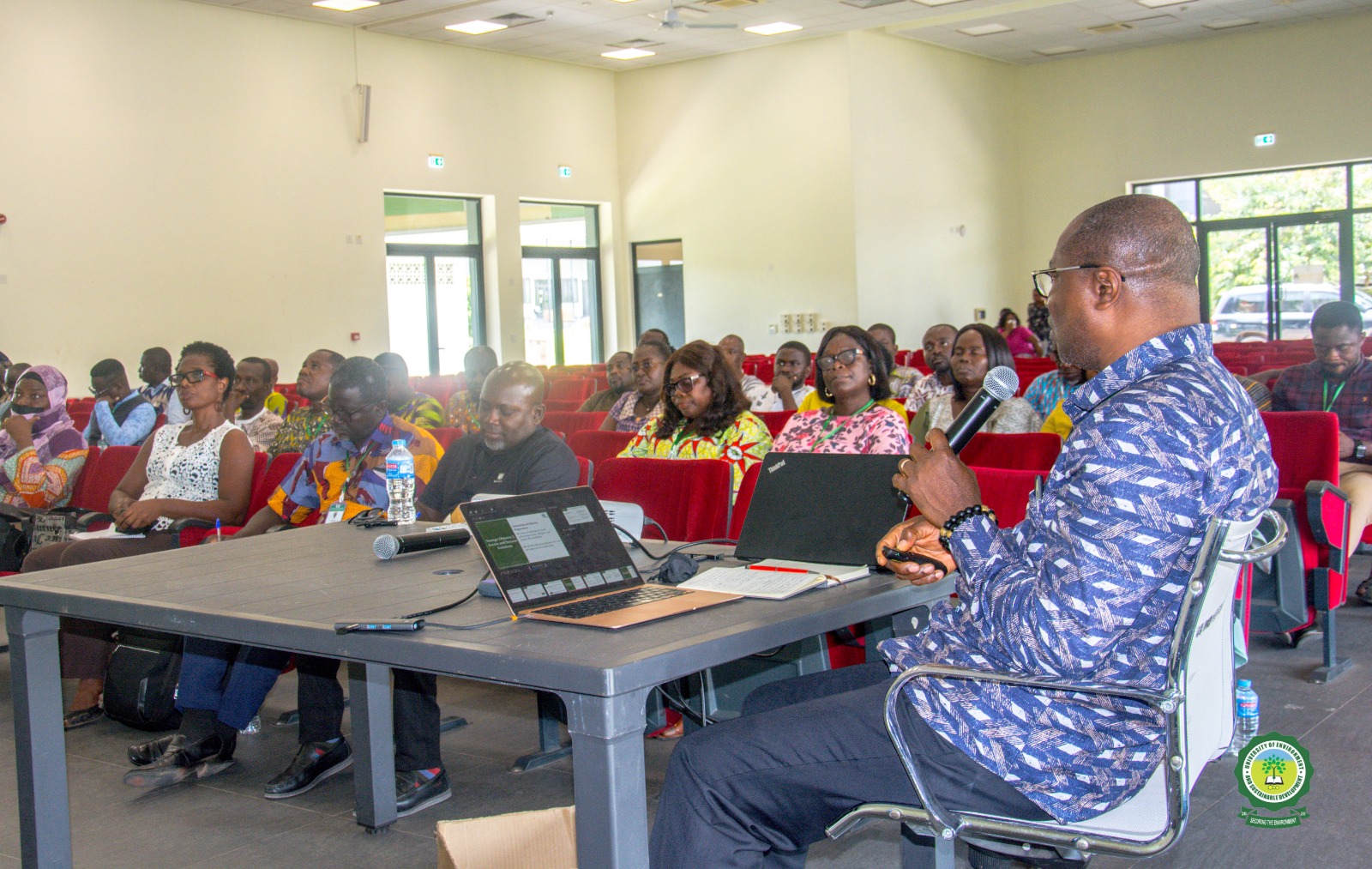The Vice-Chancellor of the University of Environment and Sustainable Development (UESD), Prof. Eric Nyarko-Sampson, held a meeting with Heads of Departments, Divisions, and Units to brief them on the “Nkabom” project and UESD’s integral role in its implementation. This engagement formed part of the project’s inception phase.
Prof. Nyarko-Sampson explained that the project is supported by the Mastercard Foundation (MCF) through its Young Africa Works (YAW) initiative. The YAW initiative aims to empower over three million young people to secure dignified and fulfilling employment by 2030. This aligns with the United Nations Sustainable Development Goals (SDGs) and Ghana’s national strategy, “An Agenda for Jobs: Creating Prosperity and Equal Opportunity for All.” According to the Foundation, agriculture is central to achieving these goals.
The Vice-Chancellor noted that over the past two years, the project team has been rigorously defending the proposal for the initiative.
About the Nkabom Project
Titled “Nkabom: Nutrition and Sustainable Agri-food Collaborative,” the initiative is a ten-year project under the McGill–Mastercard Foundation partnership. It seeks to strengthen Ghana’s higher education institutions in workforce development, research, and innovation, while creating an education ecosystem that emphasizes experiential learning for rural Ghanaian youth. Ultimately, the goal is to align labour market needs with relevant curricula to support a sustainable nutrition and agri-food system. Ghana has been chosen as the pilot country, with Senegal expected to follow.
The project is a collaborative effort involving the UESD, Koforidua Technical University(KTU), Kwame Nkrumah University of Science and Technology (KNUST), University of Ghana (UG), University of Health and Allied Sciences (UHAS), Ashesi University, Association of Ghana Industries (AGI), and McGill University, Canada.
A two-day stakeholders’ meeting with all institutional partners was recently held in Peduase, Eastern Region. During the meeting, partners shared presentations on their respective project approaches.
UESD’s focus is on Agro-waste management and Aquaculture Technology, Entrepreneurship initiative.
Prof. Nyarko-Sampson emphasised that entrepreneurship is embedded across all facets of the project, with the goal of equipping young people with the skills and resources needed to become self-reliant and job creators.
The Three Pillars of the Nkabom Project:
- Education:
Creating an education ecosystem that fosters experiential learning, climate-smart practices, and community-based research in agri-food systems. - Access:
Ensuring that all young people—including women, refugees, internally displaced persons (IDPs), and persons with disabilities—have access to inclusive and flexible learning opportunities designed to support their career growth. - Entrepreneurship:
Empowering youth-led ventures through networks, leadership development, and access to resources that drive innovation and inclusive economic growth.
The Vice-Chancellor also discussed critical components of the project such as Monitoring and Evaluation, Reporting and Feedback Mechanisms, Communication Strategy and Plan, and the various Channels of Communication that will be used throughout the project’s lifecycle.
The meeting was met with enthusiasm, as heads of departments expressed optimism about the potential impact and benefits of the project for UESD
The UESD inception workshop for implementation planning of the Nkabom project is scheduled for Monday, April 28, 2024, in Koforidua.

